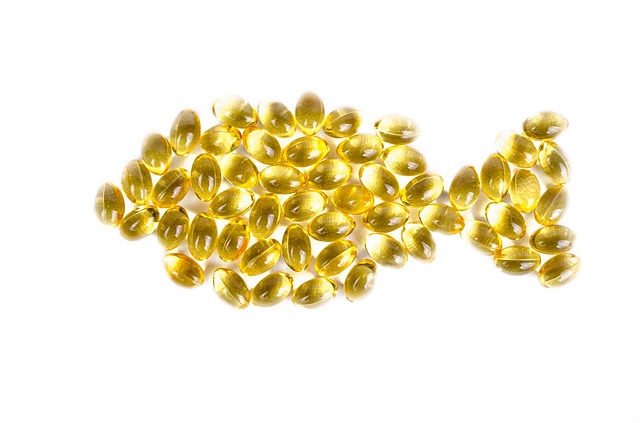Why Is Fish Considered To Be A Heart Healthy Food: Omega-3
Unsaturated fatty acids of the type omega-3 may lessen inflammation throughout the body. Blood vessel damage brought on by internal inflammation can result in heart disease and strokes. Omega-3 is the reason why is fish considered to be a healthy food.
You might be surprised to learn that eating fish twice a week can enhance your omega-3 levels and lower your chance of developing cardiovascular disease. You may start improving your heart health today with only a small change in your food habits.
A healthy diet must include seafood on a regular basis. The main sources of beneficial omega-3 fatty acids are fish and shellfish, which are also high in protein, low in saturated fat, and include minerals like vitamin D and selenium. There is compelling evidence to support the benefits of fish oil or fish consumption for the heart and blood arteries.
Table of Contents
Heart Health Benefit From Omega-3 Fatty Acids
- Lowering triglyceride levels
- Slightly lowering blood pressure
- Preventing blood clots
- Lowering the risk of heart failure and stroke
- Decreasing erratic heartbeats
Try to consume fish at least twice a week, preferably seafood that is high in omega-3 fatty acids. It seems that doing so lowers the chance of heart illness, especially sudden cardiac death.
Is It Essential On What Kind Of Fish You Eat?
Omega-3 fatty acids are present in modest amounts in a wide variety of seafood. The most omega-3 fatty acids are found in fatty fish, which also appears to be best for heart health.
Options for omega-3-rich fish include:
- Salmon \sSardine
- Pacific mackerel
- Cod, Herring, Lake Trout, Light Tuna in Cans
Should You Eat How Much Fish ?
For the majority of people, the U.S. Food and Drug Administration (FDA) suggests including fish in their diets. But some people should cut back on their fish consumption.
Most individuals should consume two servings, or 8 ounces, of omega-3-rich fish each week. 4 ounces, or about the size of a deck of cards, constitute one serving.
You can still enjoy the heart-healthy advantages of fish if you’re pregnant, trying to get pregnant, or nursing by eating a range of seafood and fish that are typically low in mercury, such as salmon and shrimp. You should only eat up to:
Total weekly consumption of fish and seafood should not exceed 12 ounces (340 grams).
4 ounces (113 grams) or less of albacore tuna per week is the maximum.
No quantity of any fish known to be high in mercury (shark, swordfish, king mackerel, and tilefish)
Additionally, young children should stay away from fish that may contain high amounts of mercury pollution. Once or twice a week, kids should consume seafood that is lower in mercury. Serving sizes start at 1 ounce for kids under 2 and get bigger as they get older.
Pay care to the fish’s preparation to reap the greatest health advantages. For instance, cooking fish on the grill, the broiler, or in the oven is healthier than deep-frying it.
Do The Advantages Of Eating Fish Outweigh Mercury Contamination?
Consuming a lot of mercury-containing fish can cause the poison to accumulate in the body. Mercury probably won’t pose any health risks to the majority of adults. However, it is particularly detrimental to the brain and nervous system growth of young children and unborn infants.
The advantages of omega-3 fatty acids typically exceed the dangers of consuming excessive amounts of mercury or other pollutants in adults. Mercury, dioxins, and polychlorinated biphenyls are the principal toxic substances found in fish (PCBs).
In the environment, mercury is present in trace amounts naturally. However, mercury can be produced by industrial pollutants and end up in lakes, rivers, and the ocean. The food that fish consumption may contain this pollutant. Mercury accumulates in the bodies of fish that consume this meal.
Smaller fish are consumed by larger fish higher in the food chain, who then absorb more mercury. A fish can accumulate more mercury and grow larger as it lives longer. Among the fish that could have greater mercury concentrations are:
- Sharks
- Tilefish
- The King mackerel swordfish

Are There Any Other Issues With Eating Fish?
According to several types of research, having high blood levels of omega-3 fatty acids raises your risk of developing prostate cancer. However, according to some studies, they could avert prostate cancer.
These studies were all inconclusive. More study is required. Your health care practitioner can help you understand what this possible risk might mean for you.
All of these researchers came up empty. More research is necessary. You can get assistance from your healthcare provider in understanding what this potential danger might entail for you.
Consuming farm-raised fish rather than wild-caught fish also worries some researchers. When raising farmed fish, chemicals such as insecticides and antibiotics may be employed. The FDA has discovered that commercial fish’s levels of pollutants don’t appear to be harmful to health.
Can Omega-3 Fatty Acid Supplements Or Other Foods Containing Omega-3 Fatty Acids Provide The Same Heart-Healthy Benefits?
Consuming fish that is high in omega-3 fatty acids and other nutrients appears to provide more heart-healthy advantages than supplementation.
If you don’t like or want fish, these alternative foods also contain some omega-3 fatty acids:
- Flax oil and flax seeds
- Walnuts
- Rapeseed oil
- Soybeans as well as soybean oil
- The chia seed
- Leafy green vegetables
Omega-3 fatty acid-fortified cereals, pasta, dairy products, and other food items are available.
The heart-healthy advantages of these foods don’t seem to be as substantial as those of fish, just like with supplements.
These studies were all inconclusive. More study is required. Your health care practitioner can help you understand what this possible risk might mean for you.
Eat Fish At Least Twice A Week
The American Heart Association advises consuming two meals of fish each week, preferably fatty fish.
3 cooked ounces, or about 3/4 cup of flaked fish, constitute one serving. Omega-3 fatty acids are abundant in fatty fish such anchovies, herring, mackerel, black cod, salmon, sardines, bluefin tuna, whitefish, striped bass, and cobia.
Is Fish Healthy For Young Children, Newborns, And Expectant Mothers?
Moms and their newborns benefit from eating fish as part of a heart-healthy diet.
Several fish species have excessive mercury or other environmental pollutant levels. Parents or those who are feeding young children should regularly check this U.S. Food and Drug Administration (FDA) website for the most recent warnings to avoid eating contaminated fish. These people include women who are pregnant, planning to become pregnant, or who are nursing.
It will be easier to reduce any potential negative effects brought on by environmental pollution if you eat a variety of seafood. When the amount of fish consumed is within the limits set by the FDA and Environmental Protection Agency, the advantages greatly outweigh any potential hazards.
Summary
Fish’s omega-3 fatty acids and other nutrients may improve heart health and lower the risk of heart-related death.
Some individuals worry that seafood may contain toxins like mercury. The advantages of including fish in a balanced diet, however, typically outweigh any potential hazards from pollutant exposure. Learn how to strike a good balance between these worries and your consumption of fish.























